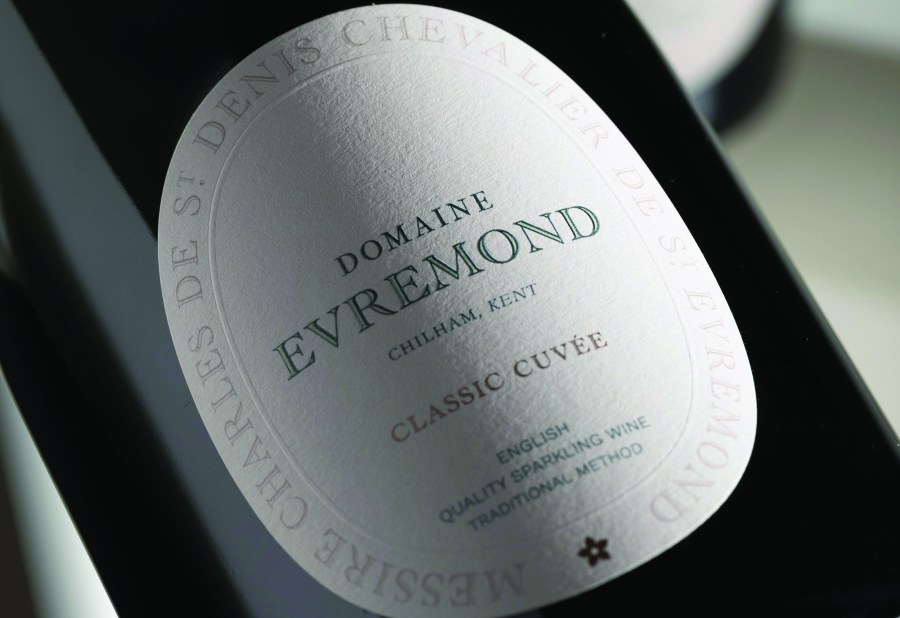The State Banquet snubbed English wine explains Richard Alleyne, journalist and communications consultant.
You are all far too busy and diplomatic to say it, so let me say it for you – the State Banquet for the French President was a tragic wasted opportunity for your wine industry.
The State Banquet for President Macron last month was a dazzling showcase of exquisitely choreographed British diplomacy, soft power, and all that is best about – French winemaking.
Five of the six bottles poured that evening were French. The lone English representative? A sparkling wine from a French producer.
I’ve nothing against Domaine Evremond, it was game-changing when it set up here, and its inclusion was a lovely example of Franco-British collaboration, which King Charles rightly highlighted in his speech.
But it is barely out of the nursery in wine terms and not yet a benchmark for the quality now being produced in this country.
There are winemakers in Kent, Sussex, Hampshire, Essex and beyond who’ve spent decades building an industry from nothing, often battling scepticism and snobbery, only to be overlooked on the biggest stage of the year – if not the decade.
Worse still, alongside Taittinger’s English outpost on the menu was an actual Champagne. Why?
This isn’t about excluding France – some French wines were, of course, appropriate for a French President – but to default so heavily to them, especially in 2025, shows laziness, insecurity – and a kind of extravagant indifference only the British ruling class could have.
It sends a terrible message to British producers – and the world’s consumers – alike: that our wines are not good enough. Queen Camilla, the President of WineGB, surely knew this. As a figurehead for the UK’s flourishing wine industry, she should have known how powerful that moment could have been – and how damaging its absence now feels.
This wasn’t a private dinner. It was a taxpayer-funded state event, broadcast globally. As any public relations or advertising professional will tell you, these events really matter.
The Royal Family is one of Britain’s few great global institutions we have left – and definitely our most powerful. It still commands enormous attention, respect and influence across the world. What appears on the Royal menu doesn’t just reflect taste. It shapes taste.
King Charles, and the Royal family, are part of a long tradition of this patronage. It was his namesake, Charles II who helped put Champagne on the map in the 17th century.
That same prestige could now be lent to the likes of Sugrue South Downs, Hattingley Valley, Hambledon or Nyetimber – or the stills of Crouch Valley. These wines are picking up international awards – and are attracting a lot of interest from Champagne and Burgundy winemakers.
They can match many of their continental cousins – not just in sparkling, but increasingly in still wine too.
Of course, some will argue, probably rightly, that French wines remain the best in the world – but that’s not the point.
When you go abroad, you do so to experience other people’s culture and cuisine. Would any other wine making country outside France serve only French produced wines at a state banquet?
Or perhaps the Palace was worried that Macron and his wife’s delicate palettes would gag on an English wine, and they would flee in a fit of vapours and a hail of Sacré Bleus? And the resulting diplomatic fallout would lead to us being shut out of all EU trade?
An interesting aside, Lord Ricketts, the Chair of the Government Wine Committee, is now in charge of bringing the Bayeux Tapestry to England on loan– another French import we helped create.
It’s tragic really. This could have been a game-changer. Had just three English wines featured at a banquet for the president of the world’s wine powerhouse, it would have generated headlines, features, debate – and best of all pride.
It would have signalled confidence, not just in our industry, but in ourselves. It would have told the world what most of it still doesn’t know: that the UK makes brilliant wine now.
Instead, we gave the floor to France. Again. Macron and French winemakers must think we are a bunch of mugs.
Nicola Bates, chair of WineGB, recently said we’re “bringing a knife to a gunfight” when it comes to our advertising budgets versus global wine giants. I’d go further: at this banquet, our Commander-in-Chief, King Charles, was fighting for the other side. And let’s not even start on having a French chef cook the meal. At this rate, I half expect the Trump state banquet in September to serve McDonald’s, Coca-Cola and KFC – to honour the giants of US cuisine and the president’s tastes. But even that, at least, would show a kind of cultural consistency.
This isn’t about jingoism or cheap nationalism. It’s about recognising a true British success story – and using the rare platforms we have to celebrate it.
The banquet was a gift-wrapped moment to showcase our wines to the world. We let it pass, glass unraised.
Being polite and diplomatic only gets you so far, we should be fighting to make sure this never happens again.
Imagine if two years ago, Macron had served English wine during Charles and Camilla’s visit to Versailles. He would have been barricaded in the Elysée Palace by a ring of tractors from Bordeaux, Reims and Beaune.
Richard Alleyne
Richard is a former journalist at The Daily Telegraph, who has worked as a communications consultant for a broad range of clients from Amazon to Royal Artists. He currently works with entrepreneurs in the beauty, television, AI and English wine industries.




